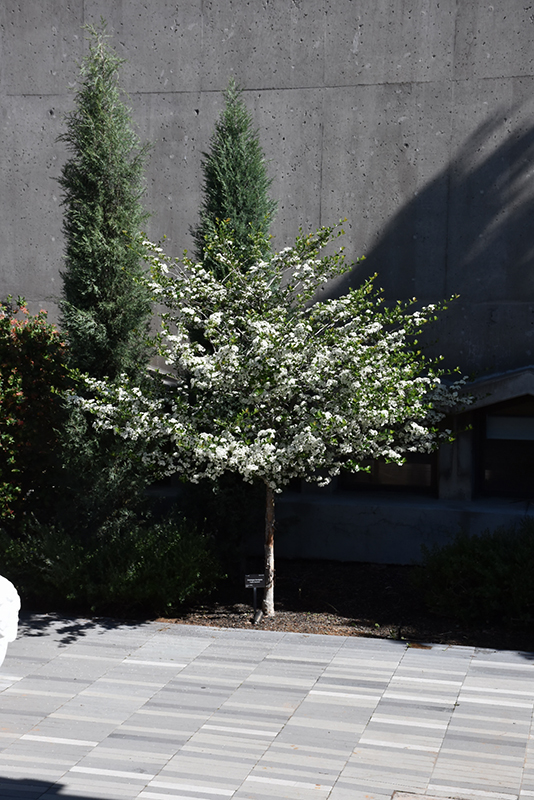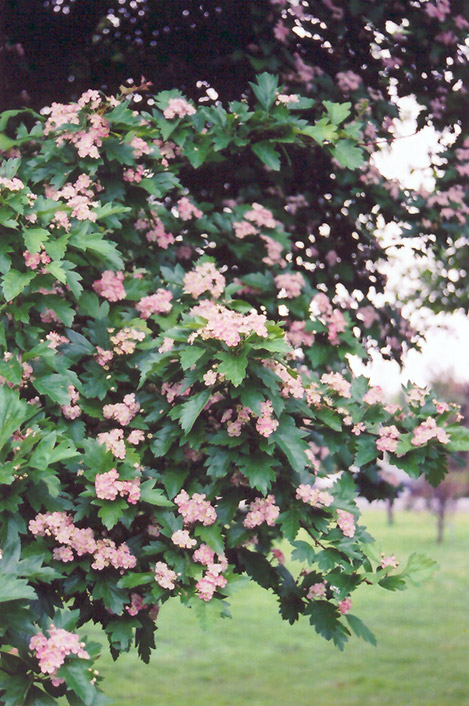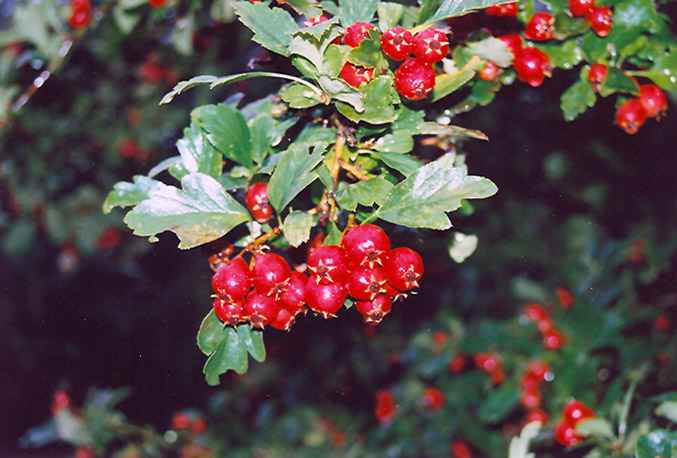Plant Search & Info
Height: 20 feet Spread: 20 feet
Sunlight:
Hardiness Zone: 4b Description: A beautiful small accent tree for home landscapes; features frothy white flowers in spring and showy scarlet fruit in fall; somewhat susceptible to leaf diseases and quite thorny, use with this knowledge Ornamental Features English Hawthorn is smothered in stunning clusters of white flowers held atop the branches in mid spring. It has forest green deciduous foliage. The glossy lobed leaves do not develop any appreciable fall color. The fruits are showy red pomes displayed from early fall to late winter. Landscape Attributes English Hawthorn is a deciduous tree with a more or less rounded form. Its average texture blends into the landscape, but can be balanced by one or two finer or coarser trees or shrubs for an effective composition. This is a relatively low maintenance tree, and is best pruned in late winter once the threat of extreme cold has passed. Gardeners should be aware of the following characteristic(s) that may warrant special consideration; English Hawthorn is recommended for the following landscape applications; Planting & Growing English Hawthorn will grow to be about 20 feet tall at maturity, with a spread of 20 feet. It has a low canopy with a typical clearance of 4 feet from the ground, and is suitable for planting under power lines. It grows at a medium rate, and under ideal conditions can be expected to live for 40 years or more. This tree does best in full sun to partial shade. It is very adaptable to both dry and moist growing conditions, but will not tolerate any standing water. It is not particular as to soil type or pH. It is somewhat tolerant of urban pollution. This species is not originally from North America.![]()
![]()
![]()
![]()
![]()
![]()
![]()
![]()
![]()




